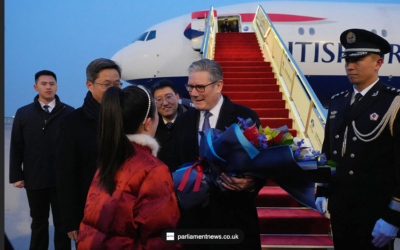In the intricate tapestry of international trade, few phenomena have as profound and far-reaching effects as trade wars. These economic conflicts, characterised by the imposition of tariffs, import restrictions, and other protectionist measures, have the potential to reshape global economies, influence political landscapes, and alter the very fabric of international relations. In this article, we explore the nature of trade wars, their historical context, and their sweeping impacts on the global economy.
The Anatomy of a Trade War
At its core, a trade war is an economic conflict that arises when countries impose tariffs or other barriers on imports and exports in response to perceived unfair trade practices. These retaliatory measures often escalate, leading to a cycle of increasing tariffs and restrictions that disrupt global trade flows. While the intentions behind these actions may vary—from protecting domestic industries to addressing trade imbalances—the consequences are universally significant.
Trade wars are not a new phenomenon. History is replete with examples, from the infamous Smoot-Hawley Tariff Act of 1930, which exacerbated the Great Depression, to the U.S.-China trade conflict that began in 2018. Each instance has left an indelible mark on the global economy, highlighting the interconnectedness of nations and the delicate balance that sustains international trade.
The Global Ripple Effect
The impact of trade wars extends far beyond the borders of the countries directly involved. As tariffs increase, the cost of goods and services rises, leading to higher prices for consumers and businesses alike. This inflationary pressure can reduce consumer spending, slow economic growth, and increase the cost of production for companies that rely on imported materials. In extreme cases, it can even trigger a recession.

One of the most significant consequences of trade wars is the disruption of global supply chains. In today’s interconnected world, goods are often manufactured across multiple countries, with components sourced from various regions. Tariffs and trade restrictions can sever these supply chains, forcing companies to seek alternative suppliers, relocate production facilities, or absorb higher costs. This disruption can lead to inefficiencies, reduced profitability, and, in some cases, the loss of jobs.
Furthermore, trade wars often lead to a decline in international cooperation. As countries become more protectionist, they may withdraw from multilateral trade agreements or engage in tit-for-tat tariffs that undermine the rules-based global trading system. This erosion of trust can make it more difficult to resolve future trade disputes and weaken global institutions like the World Trade Organization (WTO).
Case Study: The U.S.-China Trade War
The trade war between the United States and China, which began in 2018, serves as a prime example of the global economic impact of such conflicts. What started as a U.S. effort to address its trade deficit with China quickly escalated into a full-blown trade war, with both countries imposing tariffs on billions of dollars’ worth of goods.
The effects were felt across the globe. In the United States, consumers faced higher prices on goods ranging from electronics to clothing, while farmers struggled with retaliatory tariffs that reduced their access to Chinese markets. In China, the trade war contributed to a slowdown in economic growth and prompted a shift towards self-reliance in key industries.
The repercussions were not confined to the U.S. and China. The global economy experienced a slowdown, with reduced trade volumes and increased uncertainty leading to lower investment and economic growth. Countries that were heavily integrated into the U.S.-China supply chains, such as Japan, South Korea, and Germany, also suffered as demand for their exports declined.
The Long-Term Implications
While the immediate impacts of trade wars are often severe, the long-term implications can be even more profound. Prolonged trade conflicts can lead to a restructuring of the global economy, as countries seek to reduce their dependence on traditional trading partners. This shift can result in the emergence of new economic blocs, with countries forging closer ties with alternative partners to mitigate the risks of future trade disputes.
Moreover, trade wars can accelerate the rise of economic nationalism, as countries prioritise self-sufficiency and domestic production over global integration. While this may provide short-term benefits in terms of job creation and economic stability, it can also lead to inefficiencies, reduced innovation, and slower long-term growth.
In the realm of geopolitics, trade wars can exacerbate tensions between nations, contributing to a more fragmented and polarised world. As countries become more insular and protectionist, the potential for conflict increases, whether in the form of military confrontations or economic sanctions. This shift towards a multipolar world order could undermine global stability and make it more difficult to address pressing global challenges such as climate change, poverty, and public health crises.
Navigating the Future
As we look to the future, the lessons of past trade wars are clear: while protectionism may offer short-term gains, the long-term consequences are often detrimental to global prosperity. In an increasingly interconnected world, cooperation and multilateralism remain the keys to sustainable economic growth and stability.
To mitigate the risks of future trade wars, it is essential for countries to strengthen global trade institutions, such as the WTO, and to pursue policies that promote fair and equitable trade. This includes addressing the root causes of trade imbalances, such as currency manipulation and intellectual property theft, through dialogue and negotiation rather than unilateral action.

Furthermore, businesses must adapt to the evolving trade landscape by diversifying their supply chains, investing in new markets, and embracing innovation. By doing so, they can reduce their vulnerability to trade disruptions and position themselves for success in a rapidly changing global economy.


